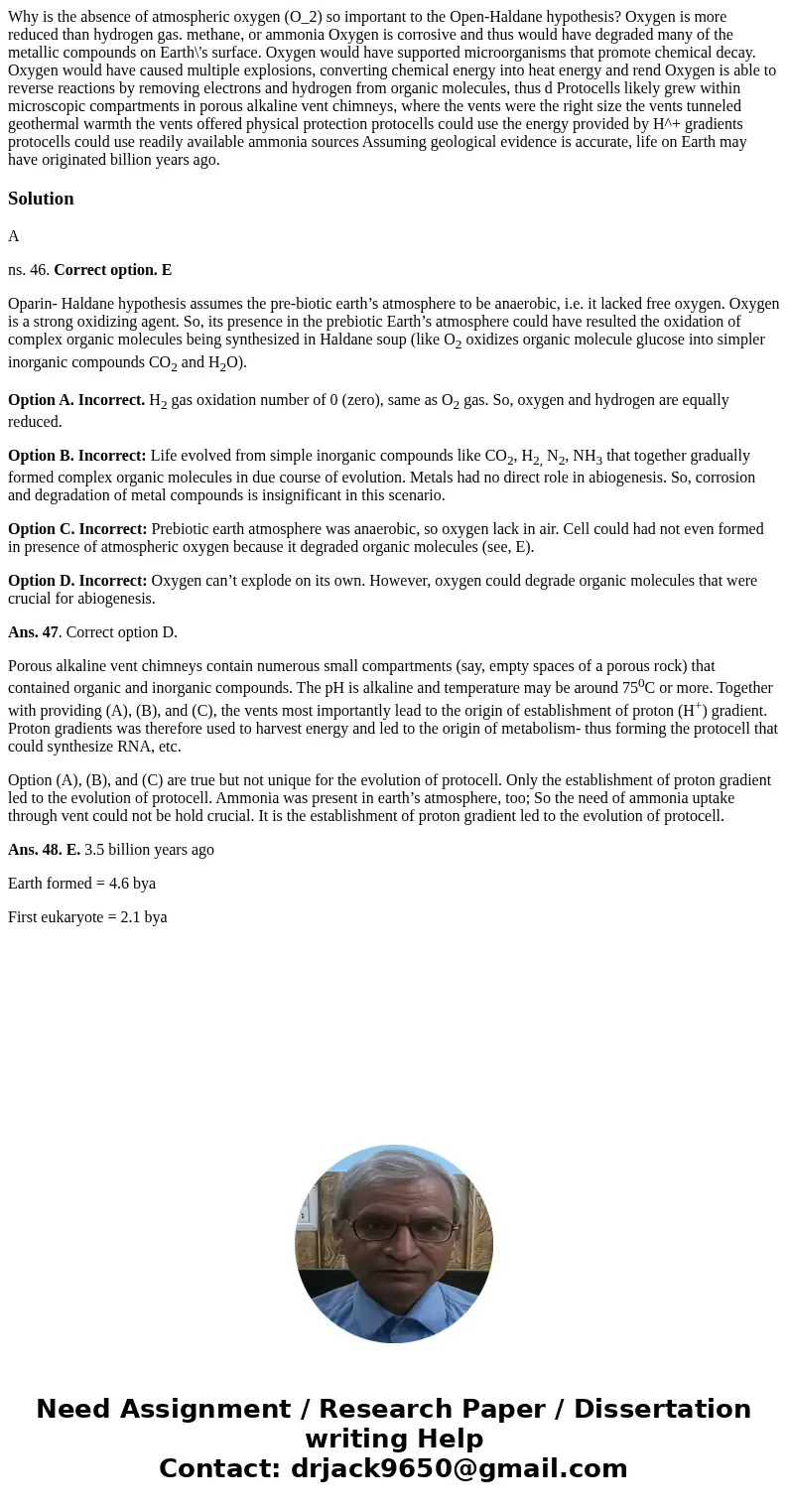Why is the absence of atmospheric oxygen O2 so important to
Solution
A
ns. 46. Correct option. E
Oparin- Haldane hypothesis assumes the pre-biotic earth’s atmosphere to be anaerobic, i.e. it lacked free oxygen. Oxygen is a strong oxidizing agent. So, its presence in the prebiotic Earth’s atmosphere could have resulted the oxidation of complex organic molecules being synthesized in Haldane soup (like O2 oxidizes organic molecule glucose into simpler inorganic compounds CO2 and H2O).
Option A. Incorrect. H2 gas oxidation number of 0 (zero), same as O2 gas. So, oxygen and hydrogen are equally reduced.
Option B. Incorrect: Life evolved from simple inorganic compounds like CO2, H2, N2, NH3 that together gradually formed complex organic molecules in due course of evolution. Metals had no direct role in abiogenesis. So, corrosion and degradation of metal compounds is insignificant in this scenario.
Option C. Incorrect: Prebiotic earth atmosphere was anaerobic, so oxygen lack in air. Cell could had not even formed in presence of atmospheric oxygen because it degraded organic molecules (see, E).
Option D. Incorrect: Oxygen can’t explode on its own. However, oxygen could degrade organic molecules that were crucial for abiogenesis.
Ans. 47. Correct option D.
Porous alkaline vent chimneys contain numerous small compartments (say, empty spaces of a porous rock) that contained organic and inorganic compounds. The pH is alkaline and temperature may be around 750C or more. Together with providing (A), (B), and (C), the vents most importantly lead to the origin of establishment of proton (H+) gradient. Proton gradients was therefore used to harvest energy and led to the origin of metabolism- thus forming the protocell that could synthesize RNA, etc.
Option (A), (B), and (C) are true but not unique for the evolution of protocell. Only the establishment of proton gradient led to the evolution of protocell. Ammonia was present in earth’s atmosphere, too; So the need of ammonia uptake through vent could not be hold crucial. It is the establishment of proton gradient led to the evolution of protocell.
Ans. 48. E. 3.5 billion years ago
Earth formed = 4.6 bya
First eukaryote = 2.1 bya

 Homework Sourse
Homework Sourse